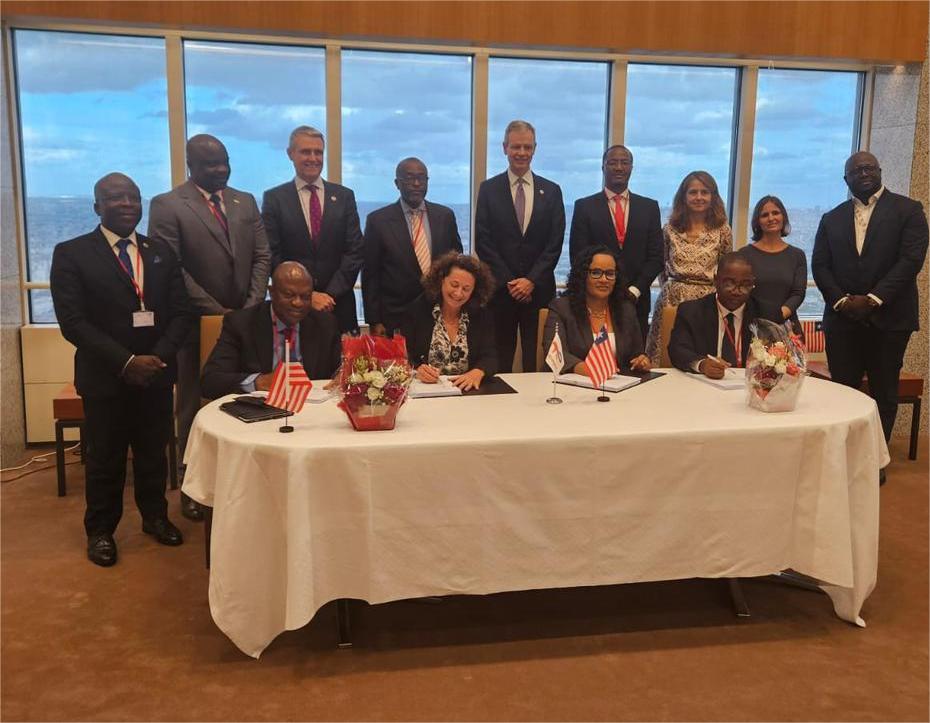TotalEnergies: A Global Energy Giant with a Controversial Footprint
TotalEnergies, formerly Total, stands as a colossal figure in the global oil and gas industry, ranking as the fourth-largest publicly traded entity in the sector. Its operational tentacles reach across more than 130 countries, encompassing exploration, production, refining, and marketing of petroleum products. Despite shedding its government-owned status in 1992, TotalEnergies remains a dominant force in the fossil fuel arena. However, its impressive global presence is marred by a trail of controversies, raising serious concerns about its ethical conduct and commitment to sustainable practices. From allegations of corruption and bribery to accusations of prioritizing profit over human rights and environmental protection, TotalEnergies’ actions have drawn sharp criticism from communities, activists, and investigative bodies alike.
TotalEnergies’ Footprint in Liberia: A Checkered Past and a Uncertain Future
TotalEnergies’ history in Liberia is a story of both engagement and retreat. Entering the Liberian market in 2005 under the post-conflict administration of Ellen Johnson Sirleaf, the company established a significant presence with over 60 filling stations. However, the economic challenges posed by the COVID-19 pandemic led to TotalEnergies divesting its Liberian assets in 2020. Now, in a surprising turn of events, the company is back, signing Production Sharing Contracts (PSCs) for four offshore blocks in the Liberian Basin. While the Liberian government hails this as a revitalization of the energy sector and a return to the global petroleum market, concerns linger about TotalEnergies’ past conduct and the potential for repeating its controversial practices.
TotalEnergies and the Shadow of Corruption: A Pattern of Exploitative Practices
Multiple allegations of corruption and bribery have dogged TotalEnergies, painting a picture of a company willing to compromise ethical standards for financial gain. Studies have linked such pervasive corruption in Africa to the stunted growth of renewable energy, hindering the transition to sustainable solutions. Furthermore, Global Witness has highlighted TotalEnergies’ prioritization of shareholder profits over addressing climate change, especially in the wake of the windfall derived from the war in Ukraine. This pattern of prioritizing financial gains raises red flags about the company’s true commitment to responsible business practices.
Case Studies in Controversy: Uganda, Mozambique, and Yemen – A Legacy of Disregard
Across Africa and beyond, TotalEnergies’ operations have been linked to a series of controversies, demonstrating a disturbing pattern of disregard for local communities and the environment. In Uganda, the company’s involvement in the East African Crude Oil Pipeline (EACOP) project has been marred by allegations of forced land acquisition and inadequate compensation for local communities. In Mozambique, the company’s Mozambique LNG project has been linked to a significant increase in greenhouse gas emissions and accusations of prioritizing the protection of its assets over the safety of civilians during insurgent attacks. In Yemen, TotalEnergies has been accused of complicity in toxic water disposal, oil spills, and pollution of groundwater, further tarnishing its reputation.
Legal Challenges and Growing Scrutiny: Holding TotalEnergies Accountable
TotalEnergies is facing increasing legal scrutiny in its home country, France, with lawsuits alleging manslaughter, environmental damage, and human rights violations. These legal challenges represent a growing movement to hold the company accountable for its actions and their impact on communities and the environment. The allegations range from contributing to climate change-fueled disasters to complicity in torture at a gas facility in Yemen. These legal battles underscore the gravity of the accusations against TotalEnergies and the growing demand for corporate responsibility.
Liberia’s Crossroads: Balancing Economic Opportunity with Social and Environmental Responsibility
As Liberia stands on the cusp of renewed oil exploration, the return of TotalEnergies presents a critical juncture. While the potential economic benefits are significant, the country must proceed with caution, learning from the experiences of other nations where TotalEnergies has operated. The Liberian government must prioritize transparency, community benefits, and environmental protection to ensure that this new chapter in its oil and gas sector leads to sustainable development and shared prosperity for all Liberians. The government must leverage its position to negotiate a fair deal that safeguards the interests of its citizens and protects the environment for future generations. The alternative risks repeating the pattern of exploitation and environmental degradation that has marred TotalEnergies’ operations in other parts of the world.


